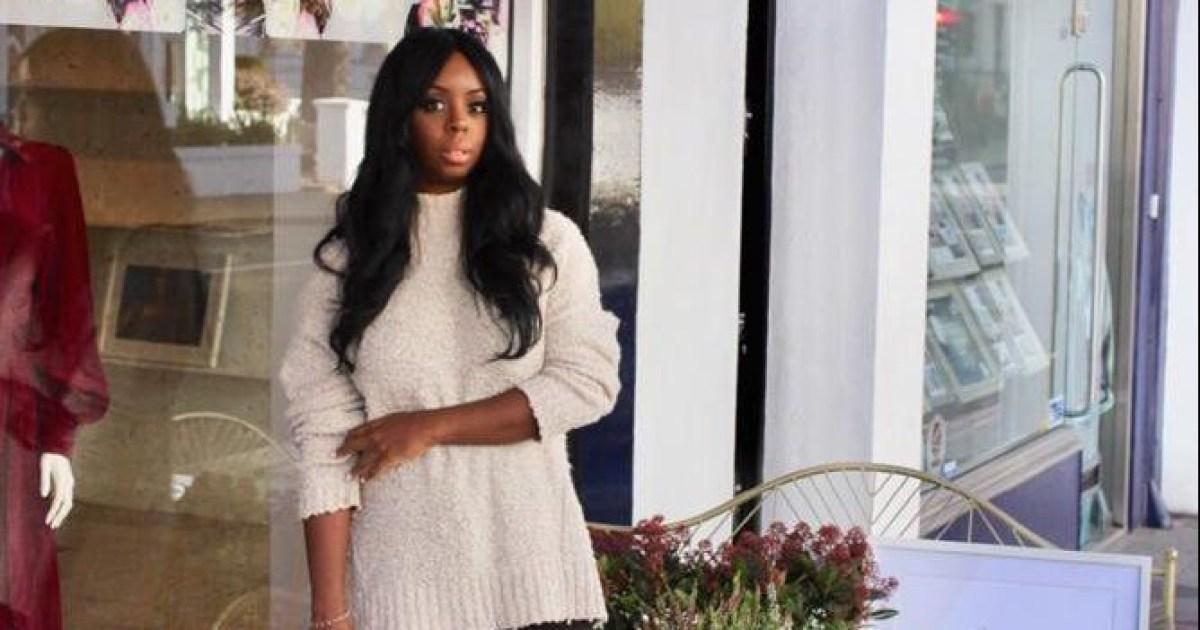I’m a lifestyle influencer with 44,500 followers and a 42-year-old mum-of-two.
I’m independent, successful and I thought I’d left my past behind me – but when I heard about Rebekah Vardy’s alleged abuse during her childhood in the Jehovah’s Witnesses, I was triggered.
It took me right back to my own childhood, when I was also abused growing up in the same religion.
There are around 130,000 Jehovah’s Witnesses – a Christian-based religious movement whose members believe the destruction of the world is imminent – in the United Kingdom and about 8.5million followers worldwide.
Jehovah’s Witnesses are known for their refusal of blood transfusions; for not participating in politics or bearing arms; and for not celebrating Christmas, Easter or birthdays.
I grew up as part of the congregation in a big city.
Along with my family, I’d go to a meeting, or service, every week, do the ministry on Saturday, where we knocked on people’s doors to tell them about the Jehovah’s Witnesses, and another meeting on Sunday.
I was discouraged from having friends outside of the church, which was upsetting as a child, especially in the summertime. I used to watch the other children from my street play together outside from the window and wish I could join them. But I couldn’t ever imagine life outside of the church.
It was arranged in such a way that we were so busy, we never had time to question anything – like the fact that women are discouraged from working. The man is the head of the household and so what he says goes.
In our house, my mum didn’t work because my dad wouldn’t allow it. He said that he was the breadwinner.
It is a very strict, patriarchal religion which is, in my experience, ruled, largely, by fear.
Anyone who challenges their ways risks being labelled an ‘apostate’ and ‘disfellowshipped’.
Anything from drinking too much alcohol, smoking a cigarette or having sex outside of marriage can lead to a disfellowship.
Anyone who is disfellowshipped is, essentially, ex-communicated from the church and everyone within the congregation. Other Jehovah’s Witnesses cross the road when they see you, even those who were good friends or members of your own family. It’s like being ghosted.
If they are still living at home, your family is only allowed to speak the bare minimum to you and certainly not about anything spiritual or the religion.
My brother, like several others I know, was disfellowshipped from the church when he was 20.
I was 25 when my brother was cast out for having sex outside of marriage, and pregnant with my first child. He carried on living nearby but we were banned from talking to him.
We were heartbroken because when someone gets disfellowshipped, it feels as though they have died and I was devastated my brother didn’t get to meet my daughter when she was born.
I had no contact with him for almost five years. But at the age of 30 that changed. Something just clicked for me and I reached out to him. No one really judged me for contacting him, although I don’t think my parents approved. It was like no time had passed and we picked up where we’d left off.
I will always feel so guilty that I allowed the religion to convince me that cutting him off was the right thing to do.
By that point, I had already been abused by a member of the church. I was around the same age as Rebecca, 11, when it started and it went on for several years. I later reported it to the organisation and there was an investigation but I felt very unsupported.
It was devastating. I felt very isolated and let down.
Rebekah Vardy – reality TV star and wife of footballer Jamie Vardy – claimed her alleged abuse, from the ages of 11 to 15, was covered up by ‘elders’ (senior male leaders). This really hit home for me. Rebecca’s situation was so similar to mine; no one seemed to believe me.
It feels as though abuse is quite common but often overlooked. It was in my case, at least.
Sadly, it wasn’t enough for me to leave the religion. Nor was my brother’s disfellowship. I just couldn’t see a life outside of the church.
I had been thinking about leaving, following the abuse I experienced – but splitting up with my ex-husband in 2019, who was also a Jehovah’s Witness, gave me another reason to leave the church.
It’s the best thing I’ve ever done.
I felt so relieved, as though a weight had been lifted from my shoulders. I no longer cared about anyone judging me or watching my every move.
More from Platform
Platform is the home of Metro.co.uk’s first-person and opinion pieces, devoted to giving a platform to underheard and underrepresented voices in the media.
Find some of our best reads of the week below:
Entertainment writer Robert Oliver watched Barbenheimer, then exposed how rude some cinema goers are
What’s it like to stay in an unhappy relationship due to financial concerns? Writer Robyn Morris explores what happened to her
Coming out as non-binary at work can be a scary prospect – Sarah Reynolds writes about why it was so important for them to be their authentic self
Columnist Alison Rios McCrone answers one reader’s dilemma that hits all the wrong notes: ‘The DJ ruined my wedding day – what can I do about it?’
I made a conscious effort to meet new people, make new friends. Instagram has been amazing for this and also the friendship part of the Bumble app.
I only began celebrating Christmas, my birthday and Easter in the last four years; things which still feel strange to me now. I’ve only put up fairy lights in December so far, but I am thinking about a Christmas tree for this year. It still feels a little surreal.
It feels strange to me to celebrate my birthday, and we don’t make a big thing of the children’s birthdays.
They spend time with their dad, who is still a practising Jehovah’s Witness, and they go to the meetings and ministry with him. They don’t have to do Bible study at home but it’s their choice if they want to. I’m happy to support them as I think having a faith is something they can always fall back on if they want or need to in later life.
Leaving the church was very daunting. It was my whole life.
I was never allowed to go to college or university because my dad frowned upon higher education. I really wish I had the opportunity to at least choose. Now, though, I do have the power to decide what is best for myself and my future, and I hope to go to university one day.
It’s only now that I’ve left the Jehovah’s Witnesses that I’ve realised how brainwashed I was. For the first time in my life, I feel in control and free to be myself without constraint.
Since leaving, I’ve cut ties with my parents and sister but I’m still in contact with my brother.
I’m still in touch with a few Jehovah’s Witnesses I knew from before. We’re on good terms and I know they don’t judge me for leaving.
I would still describe myself as a religious person with principles.
But I would never ever be part of any organised religious group again. My conscience would not allow it.
As told to Georgina Fuller
Do you have a story you’d like to share? Get in touch by emailing [email protected].
Share your views in the comments below.
Source: Read Full Article




